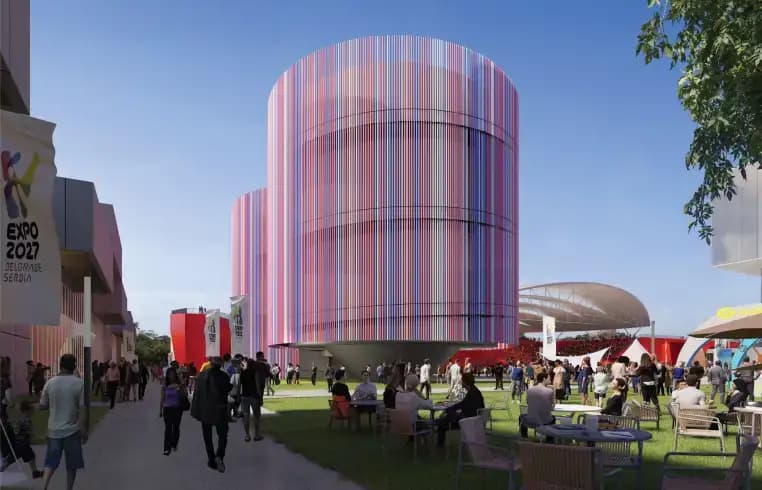15 august
2027
MUSIC FOR ALL
For the first time, a Specialised Expo is coming to the Western Balkans. EXPO 2027 Belgrade is more than an Specialised Expo event — it’s a milestone for Serbia, the region, and the world.

Your Voice, Their Name!
We are looking for a name. Help us choose a name for the Expo mascot together!
Central theme and main title

A Playground of Innovation and Connection
Explore a world where play fuels innovation. Through interactive exhibitions, groundbreaking research, and immersive thematic programs, Belgrade will showcase the power of creativity in solving global challenges.
NEWS & BLOG
In Focus
PARTICIPANTS
Coming
together
In 2027, the Specialised Expo is coming to Belgrade. Countries, organisations, and people from all walks of life will gather to share ideas, spark dialogue, and celebrate creativity. EXPO 2027 will be a meeting point for cultures, knowledge, and future-shaping innovations. Together, we’ll build a more connected, resilient, and inspired global community.
PARTICIPANTS
Coming
together
In 2027, the Specialised Expo is coming to Belgrade. Countries, organisations, and people from all walks of life will gather to share ideas, spark dialogue, and celebrate creativity. EXPO 2027 will be a meeting point for cultures, knowledge, and future-shaping innovations. Together, we’ll build a more connected, resilient, and inspired global community.
AFTER
EXPO
Experience the transformation of Belgrade and Serbia—new infrastructure, modernized transport, and lasting symbols of unity will redefine the city’s landscape. Be part of the legacy that EXPO 2027 will leave for generations to come.





